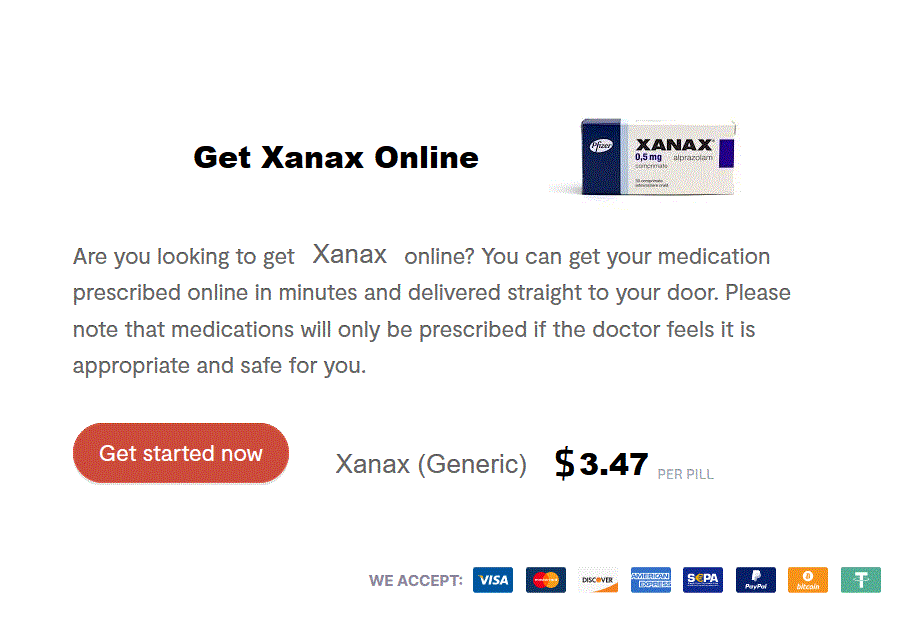The Science Behind Xanax: Mechanism of Action
The drug works by enhancing the activity of gamma-aminobutyric acid (GABA), a crucial neurotransmitter in the brain.

GABA is responsible for reducing neuronal excitability throughout the nervous system. Xanax binds to GABA receptors, particularly the GABA-A subtype, increasing the frequency of chloride channel opening.
| Drug Name: | Xanax | ||
|---|---|---|---|
| Tablet Strength: | 90 pills x 1mg | ||
| Best Price: | $385.00 | Per Pill | $4.28 |
| Where to buy? |
This action leads to an influx of chloride ions into neurons, resulting in hyperpolarization and decreased neuronal firing.
By amplifying GABA’s inhibitory effects, Xanax effectively slows down brain activity, producing sedative effects. This modulation of brain chemistry helps alleviate symptoms of anxiety and panic disorders, the primary conditions for which Xanax is prescribed.
It’s important to note that while Xanax can be highly effective in managing anxiety, its impact on brain chemistry also contributes to its potential for dependence and withdrawal symptoms. Understanding this mechanism of action helps explain both the therapeutic benefits and the risks associated with Xanax use.
How Quickly Does Xanax Take Effect?
For adults, the usual starting dose ranges from 0.25 mg to 0.5 mg, taken three times daily. Your doctor may gradually increase this dosage if necessary, but it’s rare to exceed a total daily dose of 4 mg. Elderly patients or those with liver problems may be prescribed lower doses to start.
The frequency of use depends on the specific condition being treated. For panic disorders, Xanax might be taken two to three times daily, while for anxiety, it could be prescribed up to three or four times a day. It’s important to space out doses evenly throughout the day as directed by your healthcare provider.
Remember, Xanax should only be taken as prescribed. Never adjust your dosage without consulting your doctor first. If you miss a dose, take it as soon as you remember, unless it’s almost time for your next scheduled dose. In that case, skip the missed dose and continue with your regular schedule.
Potential Side Effects and Risks of Xanax
Drug interactions are a significant concern with Xanax. It can interact dangerously with alcohol, opioids, and other central nervous system depressants, potentially leading to severe respiratory depression. Always consult your healthcare provider about potential interactions with other medications or supplements you’re taking.
Withdrawal symptoms can occur when discontinuing Xanax, especially if used long-term or in high doses. These may include increased anxiety, insomnia, and in severe cases, seizures. It’s crucial to work closely with a healthcare professional when tapering off the medication.
The addiction potential of Xanax is a serious consideration. Due to its calming effects, some individuals may develop a psychological or physical dependence. This risk increases with prolonged use or higher doses. Patients should strictly adhere to prescribed dosages and duration of treatment to minimize the risk of addiction.
Understanding these potential side effects and risks is essential for safe and effective use of Xanax. Always use this medication under the guidance of a qualified healthcare provider and report any concerning symptoms promptly.
Xanax vs. Other Anti-Anxiety Medications
Xanax, a popular benzodiazepine, is just one of many medications used to treat anxiety disorders. When comparing Xanax to other anti-anxiety medications, it’s essential to consider various factors. Benzodiazepines like Xanax work quickly to alleviate acute anxiety symptoms, but they carry a risk of dependence and are typically prescribed for short-term use.
In contrast, Selective Serotonin Reuptake Inhibitors (SSRIs) are often considered first-line treatments for long-term anxiety management. While SSRIs take longer to become effective, they generally have fewer side effects and a lower risk of dependence. Efficacy studies have shown that both benzodiazepines and SSRIs can be effective in treating anxiety, but their suitability varies depending on the individual’s specific condition and needs.
Alternative treatments, such as buspirone or beta-blockers, may also be considered for anxiety management. These medications work differently from benzodiazepines and SSRIs and may be appropriate for certain patients or specific types of anxiety disorders.
The choice of medication ultimately depends on factors such as the severity and type of anxiety, the patient’s medical history, potential drug interactions, and the risk of side effects. It’s crucial for patients to work closely with their healthcare providers to determine the most appropriate treatment option for their unique situation.